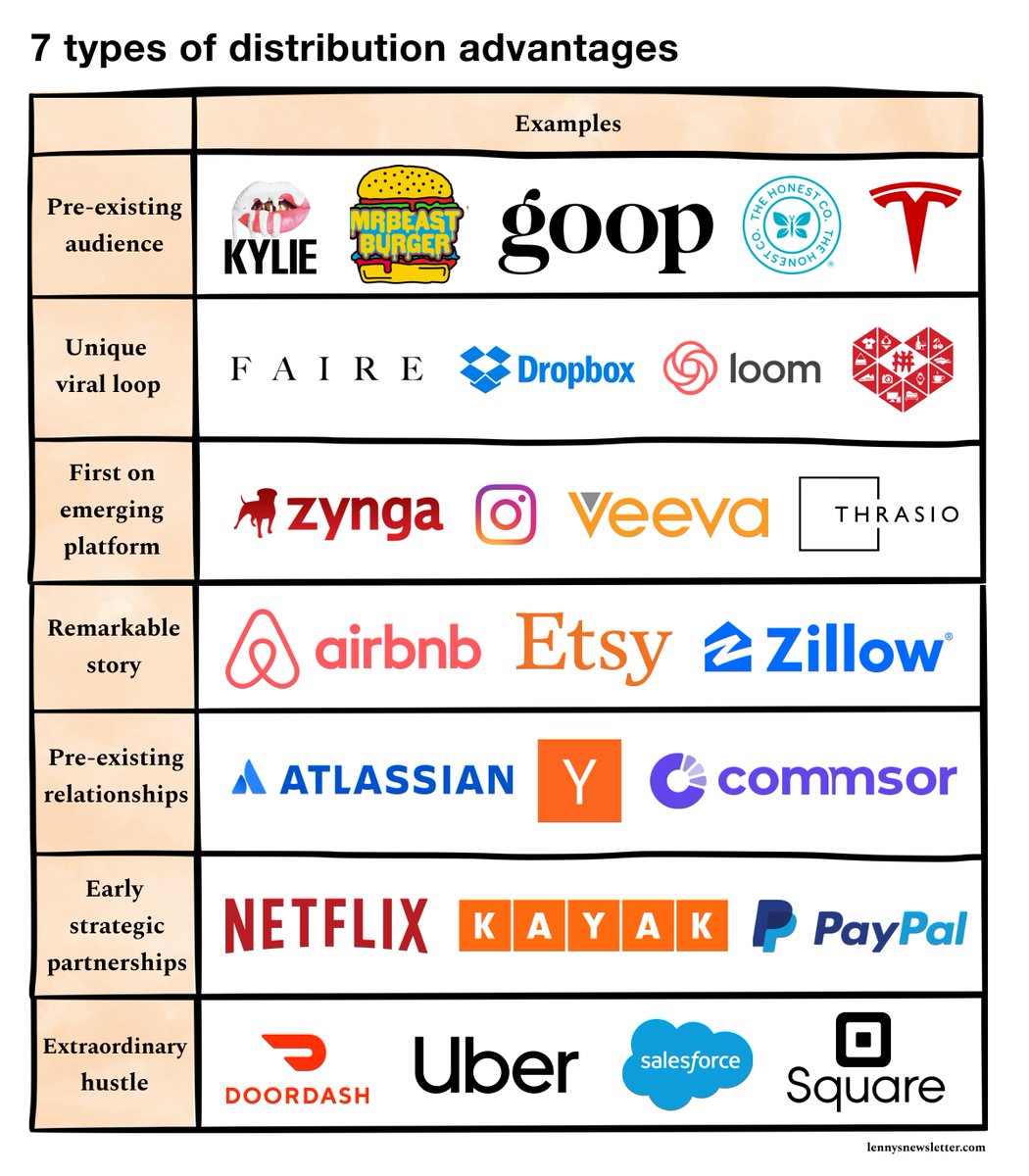
Why now?
If you're a founder, you've heard his question from investors again and again. But how essential is it to have a strong "why now", and why does it even matter? After studying the why now's of dozens of companies, here's what I've learned 🧵👇

If you're a founder, you've heard his question from investors again and again. But how essential is it to have a strong "why now", and why does it even matter? After studying the why now's of dozens of companies, here's what I've learned 🧵👇


1/ A strong why now creates two types of advantages for a startup:
(a) Unlocks the ability to provide a 10x better product, through the ubiquity of new tech (eg. @figmadesign and WebGL), newly available data/APIs (eg. @MapQuest and nav DBs), or changes in regulation (eg. @eaze)
(a) Unlocks the ability to provide a 10x better product, through the ubiquity of new tech (eg. @figmadesign and WebGL), newly available data/APIs (eg. @MapQuest and nav DBs), or changes in regulation (eg. @eaze)
(b) Creates a new untapped market need, through change in people’s behavior (eg. @Clubhouse and COVID), or change in people’s beliefs (e.g. @coinbase and faith in crypto)
2/ You can build a massive business without an immediate why now.
Companies like @SpaceX @Pinterest @Airbnb @DoorDash and @netflix (DVD version) had little if why now. They each succeeded in large part because they were able to build a 10x better product irrespective of timing.
Companies like @SpaceX @Pinterest @Airbnb @DoorDash and @netflix (DVD version) had little if why now. They each succeeded in large part because they were able to build a 10x better product irrespective of timing.
3/ Your why now can emerge later
For many companies, there was no real why now when they got started, but the world changed around them and gave them a wave to ride: @PayPal and mobile payments, @netflix and broadband, @Facebook and digital camera adoption, @Airbnb and recession
For many companies, there was no real why now when they got started, but the world changed around them and gave them a wave to ride: @PayPal and mobile payments, @netflix and broadband, @Facebook and digital camera adoption, @Airbnb and recession
4/ "I think of markets like currents, not whether or not they are big bodies of water. The stronger the current, the higher your chance of success." — @sarahtavel
5/ "The importance of the ‘why now’ has a lot to do with the reason venture capital exists. Venture capital works because there is justification for being an unprofitable company at the outset because...
...the opportunity later on is so huge, compounded by the fact that getting in early enables the startup to gain advantage." — @annimaniac
6/ "Of course any startup benefits from the tightest definition of why now—if the company literally couldn’t have existed without the ‘why now.’ Uber would not have been possible without smartphones + GPS. But great companies can also just ride one or more trends to success...
...The company clearly could’ve existed without these trends but wouldn’t have been nearly as successful." — @btrenchard
7/ "One reason that we ask the question is something my partner @jeremysliew likes to call the ‘Here be dragons’ effect. Sailors used to explore different corners of the world, but those who went to certain regions never came home. Cartographers would just put dragons...
...on these regions of the map to imply, 'Well, we don’t know what’s there. We just know the ships that go there don’t come home. So it may as well be dragons!'
For every good idea, there are probably dozens of founders over the years who have attempted to build a company...
For every good idea, there are probably dozens of founders over the years who have attempted to build a company...
...around a similar premise. And most of them are like those ships that never returned. We don’t really know what happened to them. We just know they never came back.
It follows from there that, if you’re working on an idea, someone probably tried it before and failed...
It follows from there that, if you’re working on an idea, someone probably tried it before and failed...
...so what’s different now? We’ll never know what caused the other ships to sink, so let’s at least try to figure out why now is different.” — @ataussig
8/ For much more, don't miss the full post lennysnewsletter.com/p/why-now
Huge thank you to @sarahtavel @annimaniac @btrenchard @garrytan @ataussig @joshelman for sharing their heard-earned insights with me, along everyone else who contributed in this previous thread 🙏
https://twitter.com/lennysan/status/1415439833846083586
• • •
Missing some Tweet in this thread? You can try to
force a refresh








